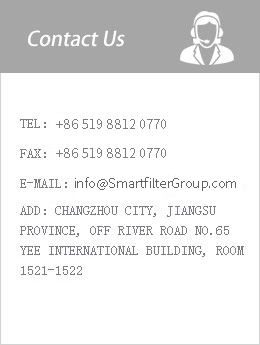
- The minist...2026/1/16
- Guizhou pr...2024/10/24
- Changzhou ...2024/10/24
- Changzhou ...2024/10/12
- Changzhou ...2024/10/12

Among the accessories of filtration equipment, the "mesh count" of the filter cloth is a key indicator to measure its performance. The differences between 200-mesh and 100-mesh filter bags mainly lie in multiple aspects such as filtration accuracy and applicable scenarios. Understanding these differences can help us choose the appropriate filtration tool more accurately.
First of all, the essence of mesh count is the number of mesh holes per unit area. A 100-mesh filter bag refers to one with 100 mesh holes per square inch, while a 200-mesh one has 200 mesh holes. The more mesh holes there are, the smaller the diameter of each mesh hole will be. After calculation, the pore size of a 100-mesh filter bag is approximately 150 microns, while that of a 200-mesh one is about 75 microns. This means that a 200-mesh filter bag can intercept even finer impurities.
In terms of filtration effect, 200-mesh filter bags have higher precision and are suitable for handling fluids containing fine particles, such as in the coating and ink industries. They can effectively remove tiny impurities and ensure product purity. The 100-mesh filter bag is more suitable for filtering larger particles of impurities, such as the initial filtration of sand and debris in industrial wastewater treatment. It can not only meet the basic filtration requirements but also avoid frequent clogging due to its small pore size.
In terms of applicable scenarios, the two also have their own focuses. 200-mesh filter bags are often used in fine processing links with high purity requirements, such as the filtration of cleaning solutions in the electronics industry and the filtration of raw materials in food and beverages. 100-mesh filter bags are mostly used in the pretreatment or coarse filtration stage, such as in chemical production to remove large particle impurities from raw materials and reduce the burden on subsequent precision filtration equipment.
In addition, there are also differences in their flow rates and service lives. Due to the large pore size of the 100-mesh filter bag, the resistance when fluid passes through is small, and the flow rate is relatively larger. However, the intercepted impurity particles are coarser. If the impurity content is high, the filter bag is prone to being clogged by large impurities, and its service life may be shortened. Due to its small pore size, the 200-mesh filter bag has a relatively small flow rate, but it can retain more fine impurities. In an environment where the impurities are mainly small particles, its service life may be longer.
In conclusion, 200-mesh and 100-mesh filter bags each have their own advantages. When making a choice, it is necessary to comprehensively consider factors such as filtration requirements and impurity characteristics to achieve the best filtration effect.
Changzhou Xiahua Environmental Protection Technology Co., Ltd. specializes in the production and operation of industrial filtration materials for many years, mainly in the chemical industry, and the products are exported to many countries. Xiahua mainly produces the filter cloth, filter bag, pressure filter bag, etc., Xiahua filter cloth, use heart!







